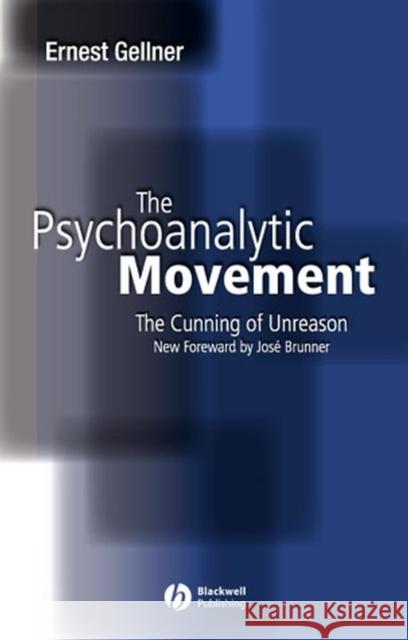The Psychoanalytic Movement: The Cunning of Unreason » książka
topmenu
The Psychoanalytic Movement: The Cunning of Unreason
ISBN-13: 9780631234135 / Angielski / Miękka / 2003 / 254 str.
The Psychoanalytic Movement explains how the language of psychoanalysis became the dominant way in which the middle classes of the industrialized West speak about their emotions.
- Explains how the language of psychoanalysis became the dominant way for the industrialized West to speak about emotion.
- Argues that although psychoanalysis offers an incisive picture of human nature, it provides untestable operational definitions and makes unsubstantiated claims concerning its therapeutic efficacy.
- Includes new foreword by Jose Brunner that expands on the central argument of the book and argues that Gellner and Freud might be seen as kindred spirits.











